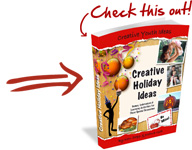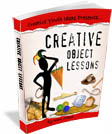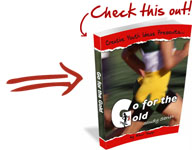Based on 1 Corinthians 13, How does you love measure up?
LOVE IS PATIENT: I am slow to become angry or irritated. I never yell or lose my temper.
1 2 3 4 5 6 7 8 9 10
LOVE IS KIND: I am thoughtful and considerate and praise the good qualities in others. I freely give others my time and am always looking for ways to build others up.
1 2 3 4 5 6 7 8 9 10
LOVE ENVIES NO ONE: I am not jealous when others get more attention than I do and I am not threatened if they accomplish more or have more talent or do better than I do. I don’t sit back and pout or complain or try to see faults in others when I go unnoticed or am not in the spotlight.
1 2 3 4 5 6 7 8 9 10
LOVE IS NEVER BOASTFUL: I don’t direct or try to control or hog the conversation to make sure others find out about my own accomplishments and abilities. I never stretch the facts so that I leave a better impression than what is actually true. I don’t talk about myself much, but prefer to get others to talk about themselves.
1 2 3 4 5 6 7 8 9 10
LOVE IS NEVER CONCEITED: I don’t have a elevated view of my own importance or have to be begged, pampered or honored to do my share of the load. I don’t twist the conversation around to the things I am interested in or draw attention to myself. I don’t look for things in which I am better than others.
1 2 3 4 5 6 7 8 9 10
LOVE IS NEVER RUDE: I never cut others down or am rude, harsh or crude, sarcastic or cocky; but instead I am courteous, polite, and sensitive to the needs of others.
1 2 3 4 5 6 7 8 9 10
LOVE IS NOT SELFISH: I’m not self-centered or self-seeking, making others fit into my mold, expecting others to behave a certain way for my interests; I’m not possessive of others or those I love or the things I have, insisting on my own rights. I’d willingly let others use anything I have.
1 2 3 4 5 6 7 8 9 10
LOVE DOES NOT TAKE OFFENSE: I’m not touchy, cranky, easily irritable, defensive, brittle or supersensitive; I’m not easily hurt or irritated over things that don’t really matter, or offended because of the oversight of a friend or someone else.
1 2 3 4 5 6 7 8 9 10
LOVE KEEPS NO SCORE OF WRONGS: I’m quick to forgive and forget the offenses of those who hurt me in any way, intentionally or unintentionally. I don’t have to retaliate or defend myself when criticized by anyone, even someone in authority over me.
1 2 3 4 5 6 7 8 9 10
LOVE DOES NOT GLOAT OVER OTHER MEN’S WRONGS: I’m not
secretly glad when others make a mistake or are proven wrong; I don’t have an “I told you so” attitude, or take pleasure in reminding others of their faults.
1 2 3 4 5 6 7 8 9 10
LOVE DELIGHTS IN THE TRUTH: I am happy when truth wins out, even when it may show me up as untruthful in some situations or shed a less than positive light on me.
1 2 3 4 5 6 7 8 9 10
LOVE HAS NO LIMIT TO ITS FAITH: I am not quick to doubt others or God, not pessimistic, always encouraging others to achieve their best, believing they can do it. I do not worry or doubts God work things for my best interests.
1 2 3 4 5 6 7 8 9 10
LOVE HAS NO LIMITS TO ITS HOPE: I do not get easily frustrated with life, with friends, and am always looking to what others can be instead of what I see.
1 2 3 4 5 6 7 8 9 10
LOVE HAS NO LIMIT TO ITS ENDURANCE: I am not quick to give up, easily frustrated, quick to complain. I always give everything and every relationship my best, regardless of their response, always giving and not expecting anything in return.
1 2 3 4 5 6 7 8 9 10
Total Score: ____________ / 140

 Holiday Collection
Holiday Collection
Games and Activities in Celebration of common Holidays.
Creative Holiday Ideas has over 300 pages of ideas to help you plan not only your next Valentine’s Day, but also various other common holidays. If you’ve ever wondered what you’re going to do with youth for the various holidays and how you’re going to do it, this resource is for you.
=> Tell me more about the Holiday Collection

 MORE IDEAS? See “Creative Object Lessons”
MORE IDEAS? See “Creative Object Lessons”



